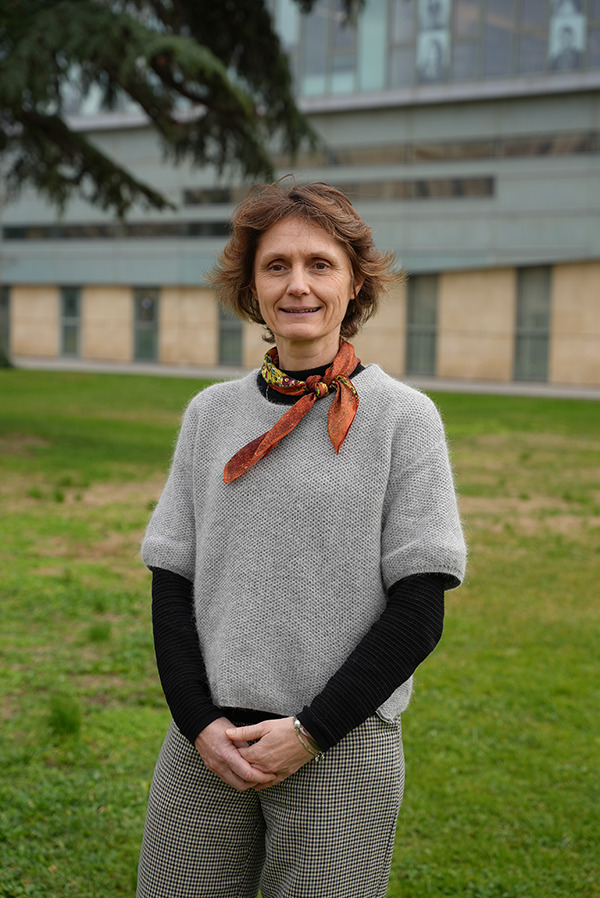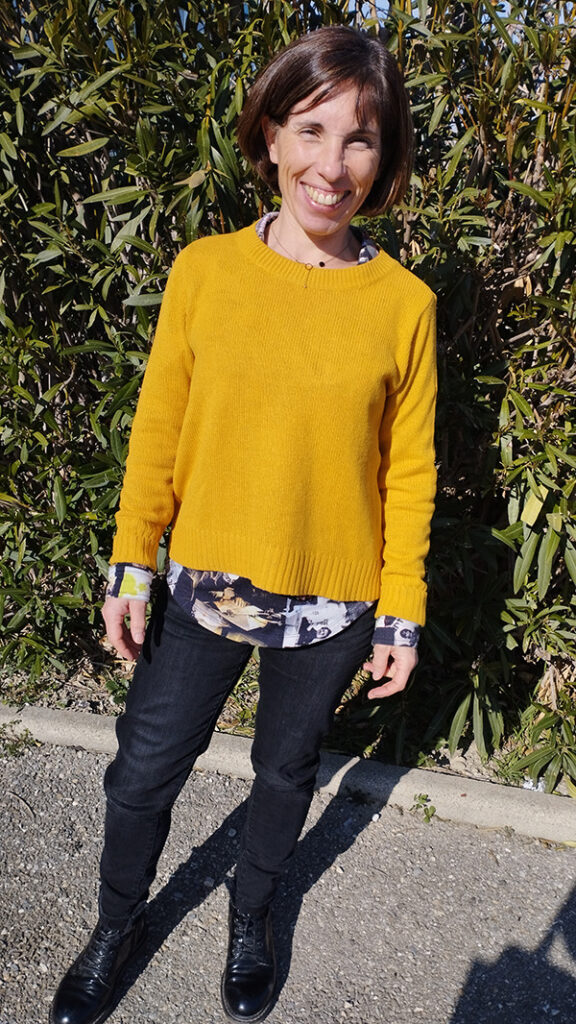[Interviews] Gaëlle Mesgouez, Vice-President of Research and Florence Charles - Vice-President of Economic Development and Professional Integration
Photo from left to right: Gaëlle Mesgouez, Vice-President for Research - Florence Charles, Vice-President for Economic Development and Professional Integration
At the start of this new year and the beginning of the new presidential term, we interviewed two newly elected women: Gaëlle MesgouezVice-President in charge of Research, and Florence CharlesVice-President for Economic Development and Workforce Integration. Find out their answers below.
Gaëlle Mesgouez - Vice-President Research
Can you tell us a bit about your background and how your former roles have helped you in your current role as Vice-Chairman?
I have an engineering degree from the École Nationale Supérieure d'Électricité et de Mécanique in Nancy, and a doctorate in mechanics from the École Centrale de Nantes - Université de Nantes.
After an ATER post at the University of Southern Brittany, I was posted to a lecturer's post at the Avignon IUT to open the Packaging Emballage Conditionnement (PEC) department. I was involved in setting up this course and the machinery in the technology hall. Among other things, I was director of studies for the course.
In 2019, I moved to a university professorship at the UFR STS and became deputy director of the UMR EMMAH, AU-INRAE.
I have been involved in the life of the institution as an elected member of the IUT council, the Board of Governors, the CFVU and the STS UFR council.
This diversity gives me a global vision of the teaching and research profession, particularly in terms of research and training, but also in terms of investment in the community.

What sparked your interest in Research?
Initially, it was intellectual curiosity and the desire to learn how to model sometimes complex problems that interested me: putting physical phenomena into equations and being able to explain them, and sometimes even predict them, is a source of challenge and pleasure for me. Afterwards, I did a thesis in interaction with French and English researchers. I enjoyed the richness of the scientific exchanges and became aware of the importance of the collective, of the place of each individual with complementary expertise in the same project, and of peer-to-peer transmission. Supervising doctoral students or trainees in research projects is part of this transmission, a key point in the research process, but also a great responsibility and a human challenge.
What are the major challenges ahead for your vice-presidency and what actions do you plan to implement in the institution's research policy?
In the school's project, the major challenges will be to increase the number of partnerships, both with companies and with the region's institutional partners, thanks to the tools recently put in place, such as the partnership chairs on themes in line with our two key areas of identity and the four priority transitions (cultural, digital, agri-food and environmental). As part of this dynamic, we need to work on interdisciplinarity, which is another area where partnerships add value.
The partnership will also take on an international dimension, building on certain chairs and relationships that we already have and others that we will need to initiate. We will also continue and intensify our collaboration with INRAE and CNRS.
We are also going to have to adapt to certain developments: for example, the ethical dimension of research, but also a certain amount of ground to make up on open science in terms of transparency and reproducibility in research, which will be worked on in close collaboration with the DARI and BU support services, and with INRAE.
What can we wish for research at Avignon University?
We would like to improve the visibility of our research activities in the region, nationally and internationally. Our partnerships will play a key role in this.
Avignon University has a number of very active, committed and willing research players who are keen to explore new avenues. We need to build on this momentum and exploit the full potential of our teaching and research staff by providing them with the most appropriate and optimal support. In particular, research funding is now based on calls for projects to supplement resources, and in this context, high-quality support is essential.
It is to be hoped that these dynamics will continue over the long term and contribute to the development of the members of Avignon Université.
Florence Charles - Vice-Chairwoman responsible for economic development and professional integration
Can you tell us a bit about your background and how your former roles have helped you in your current role as Vice-Chairman?
After a Master's degree in structural biochemistry, I completed a CIFRE thesis at the University of Montpelier and obtained a Doctorate in Food Science. As a lecturer at Avignon University, I worked with a number of companies on a variety of issues. This link with the professional world highlighted the need for training, particularly in the plant sector, and we set up a work-linked master's degree, 'Plant Sector Engineering', at the IFV, of which I am currently co-director. I am also co-leader of the UMT IQUAR 'Innovating to improve the quality of fresh fruit and vegetables' with the CTIFL (Centre Technique Interprofessionnel des Fruits et Légumes). These experiences have enabled me to learn how to assess the expectations of partners and better understand the way they operate.

What sparked your interest in economic development and professional integration?
My career path has always been business-oriented. A number of factors sparked my interest in economic development and professional integration, including the desire to participate in the economic development of local and national companies, knowledge of technological innovation, and the desire to train students while promoting their professional success.
What are the major challenges ahead for your vice-presidency and what actions do you plan to implement in the school's economic development and professional integration policy?
One of the University's major challenges is to consolidate its partnership policy so that we can become firmly rooted in the socio-economic environment and promote the professional integration of our students.
The first actions are to pilot, with the dedicated departments, two structuring projects that are just getting underway: the Expansion project (AAP ASDESR), which aims to promote work-study programmes, research partnerships via chairs and international activities, and the PUI Provence project (Pôle Universitaire d'Innovation), which aims to support and develop innovation and entrepreneurship in laboratories and among students. Internal and external communication with companies and institutional partners will be a major lever in meeting the University's challenges. In addition, the opening this summer of the Villa Créative and the arrival of the Villa Naturalité will be major tools for strengthening our roots in the region.
What can we hope for in terms of the university's economic development and professional integration?
Researchers, lecturers, teachers, technical and administrative staff and students make a decisive contribution to the dynamism of the University. We need to keep up the collective momentum to continue to enrich our partnerships and promote the economic development of the University and the professional integration of our students.
Updated on 2 February 2024